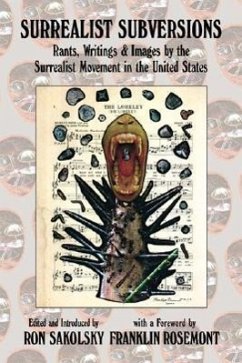
Live at the Height of Images - Vivre à Hauteur des Images
Versandkostenfrei!
Versandfertig in 1-2 Wochen
13,99 €
inkl. MwSt.

PAYBACK Punkte
7 °P sammeln!
We do not perceive the world, but, most of the time, the representations that our brain elaborates. In What is Life (1944), Erwin Schrödinger notes that, only when our representations and our perceptions (at first unconscious) diverge, is our attention awaken by this incoherence, and tries to resolve it. The sciences of the mind allowed to validate this scheme. The pre-eminence of representations over perceptions is heavily reinforced by the mechanisms of exchange which imply the agreement of the parties on the equivalence of the objects exchanged. This is only possible if the parties agree o...
We do not perceive the world, but, most of the time, the representations that our brain elaborates. In What is Life (1944), Erwin Schrödinger notes that, only when our representations and our perceptions (at first unconscious) diverge, is our attention awaken by this incoherence, and tries to resolve it. The sciences of the mind allowed to validate this scheme. The pre-eminence of representations over perceptions is heavily reinforced by the mechanisms of exchange which imply the agreement of the parties on the equivalence of the objects exchanged. This is only possible if the parties agree on blinding themselves as to the nature of these objects, on reducing them to the status of conventions required for the exchange, and on abstracting them from the relations and processes, in which they are however really intricated with the rest of the world. This reduction of things - and beyond, of the world itself - to the fictional role they play in exchange is not without ecological consequences. Art and poetry, on the contrary, emphasize perception, attempting to capture forms in their emergence and fluidity before they fossilize into representations. ------------------------------------------------------- Nous ne percevons pas le monde, mais, la plupart du temps, les représentations que notre cerveau élabore. Dans Qu'est-ce que la vie (1944) Erwin Schrödinger note que ce n'est que quand nos représentations et nos perceptions (d'abord inconscientes) divergent, que notre attention, mise en éveil par cette incohérence, tente de la résorber. Les récents résultats des sciences de l'esprit ont permis de valider ce schéma. La pré-éminence des représentations sur les perceptions est lourdement renforcée par les mécanismes de l'échange qui impliquent l'accord des parties sur l'équivalence des objets échangés. Cela n'est possible que si les parties acceptent de s'abuser sur la nature de ces objets, de les réduire au statut de conventions nécessaires à l'échange, et de les abstraire des relations et des processus où elles sont pourtant réellement intriquées avec le reste du monde. Cette réduction des choses - et par delà, du monde lui-même - au rôle fictionnel qu'elles jouent dans l'échange ne va pas sans conséquences écologiques. L'art et de la poésie mettent au contraire l'accent sur la perception, tentant de saisir les formes dans leur émergence et leur fluidité avant qu'elles ne se fossilisent en représentations.














